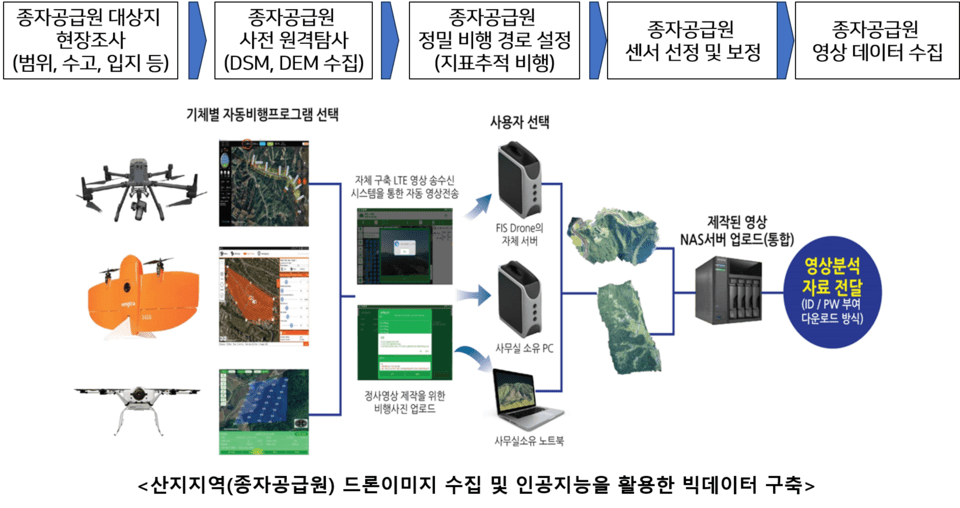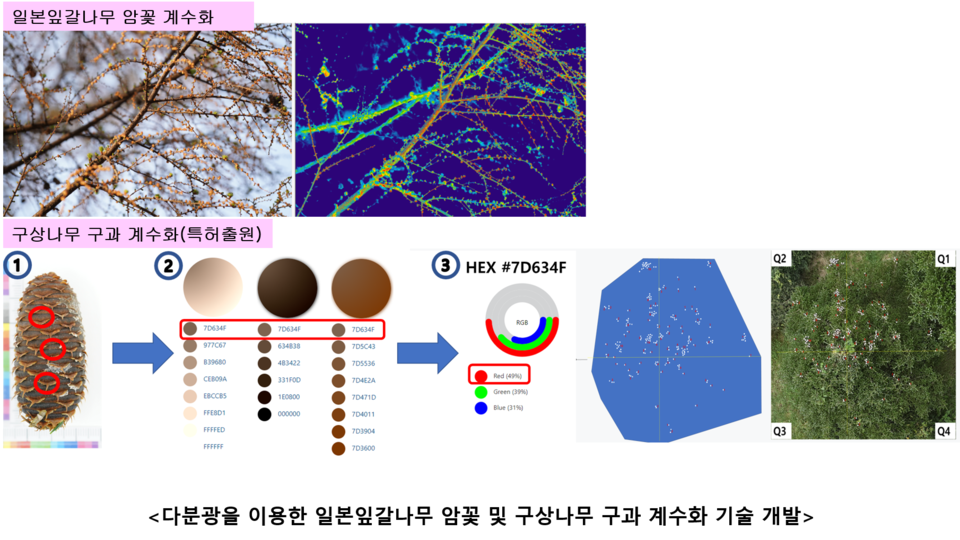The Korea Forest Service’s National Institute of Forest Science (Director Kim Yong-gwan) announced plans to conduct a five-year research project to develop a system to predict flower blooming, fruiting, and seed production using artificial intelligence (AI) and big data.
This research initiative aims to address issues such as changes in flowering and fruiting periods due to climate change, deterioration in seed quality, and a decline in forestry manpower. The research team plans to incorporate core technologies of the Fourth Industrial Revolution, such as drone remote sensing, digital image analysis, and AI prediction algorithms, into seed production management.
Starting in August this year, the National Institute of Forest Science will conduct monthly surveys to measure seed occurrences. The research project will be conducted in collaboration with companies and institutions, including Jeju Cheonji Agriculture Corporation, Kyung Hee University, and Haneul Forest Engineering.

Traditional methods, such as sampling and estimation formulas, often resulted in significant prediction errors due to weather changes. The newly introduced system aims to enhance accuracy by utilizing actual data and predictive models for each individual and time period. Using autonomous drones will reduce survey manpower and costs, while allowing rapid collection of field information.
The Korea Forest Service anticipates that this system will accelerate the digital transformation of forest seed management.

Dr. Koo Ja-jung from the Forest Bioinformation Research Division at the National Institute of Forest Science stated, “This project aims to improve the accuracy of forest seed collection and production predictions, establish a foundation for stable seed supply in response to climate change, and set a new standard for forest resource management through the digital transformation of forests using AI and drones.”